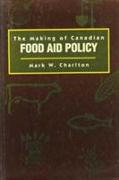- Start
- The Making of Canadian Food Aid Policy
The Making of Canadian Food Aid Policy
Angebote / Angebote:
Since the Colombo Plan in the early 1950s, food aid has been an important and highly visible component of the Canadian development assistance program. Until the early 1970s, however, the Canadian food aid program was little more than a loosely connected collection of disparate programs designed to meet a host of sometimes conflicting objectives. In the wake of the world food crisis of 1972-75, a growing number of groups began to question the developmental effectiveness of food aid. In response, the Canadian government undertook an extensive review and assessment of its food aid program, which resulted in a series of new policy initiatives designed to change both the substance of food aid programs and the manner in which they were administered. These changes marked a watershed in the history of the Canadian food aid program, setting out the fundamental policy themes that have been consolidated and refined in the 1980s and early 1990s. Mark Charlton examines the evolution of the Canadian food aid program during this critical period of policy reform. Focusing on the rationale of the food aid program, the nature of the planning and programming process, the selection of delivery channels, the make-up of the food aid commodity basket, and the nature of donor-recipient relations, Charlton provides useful insights into the overall objectives and priorities of Canadian foreign policy in the developing world. He also reveals the impact of domestic economic interests, Canadian political culture, bureaucratic politics, and the global food aid regime on the evolution of Canadian aid policies.
Fremdlagertitel. Lieferzeit unbestimmt
